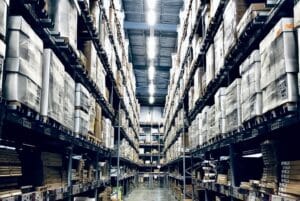Discuss with our experts, don’t hesitate!
WMS EGO
Managing your warehouse has never been so simple: EGO a WMS that suits you.

For over 37 years

We support you
SITACI designs and publishes software and IT solutions applied to logistics. A pioneer in its sector, our company develops, implements and maintains its own WMS solution: EGO, Supply Chain Management.

WMS EGO, how does it work?
WMS
EGO

How do I develop EGO?
Robust standard base to which are added more than 25 additional modules allowing you to extend coverage and connect to your environment for an “augmented” WMS.
Scalable, the EGO suite aims to be dynamic and constantly evolving:
- 2 annual updates
- 70 to 100 new features added to the base
- Addition of 2 new activatable modules each year
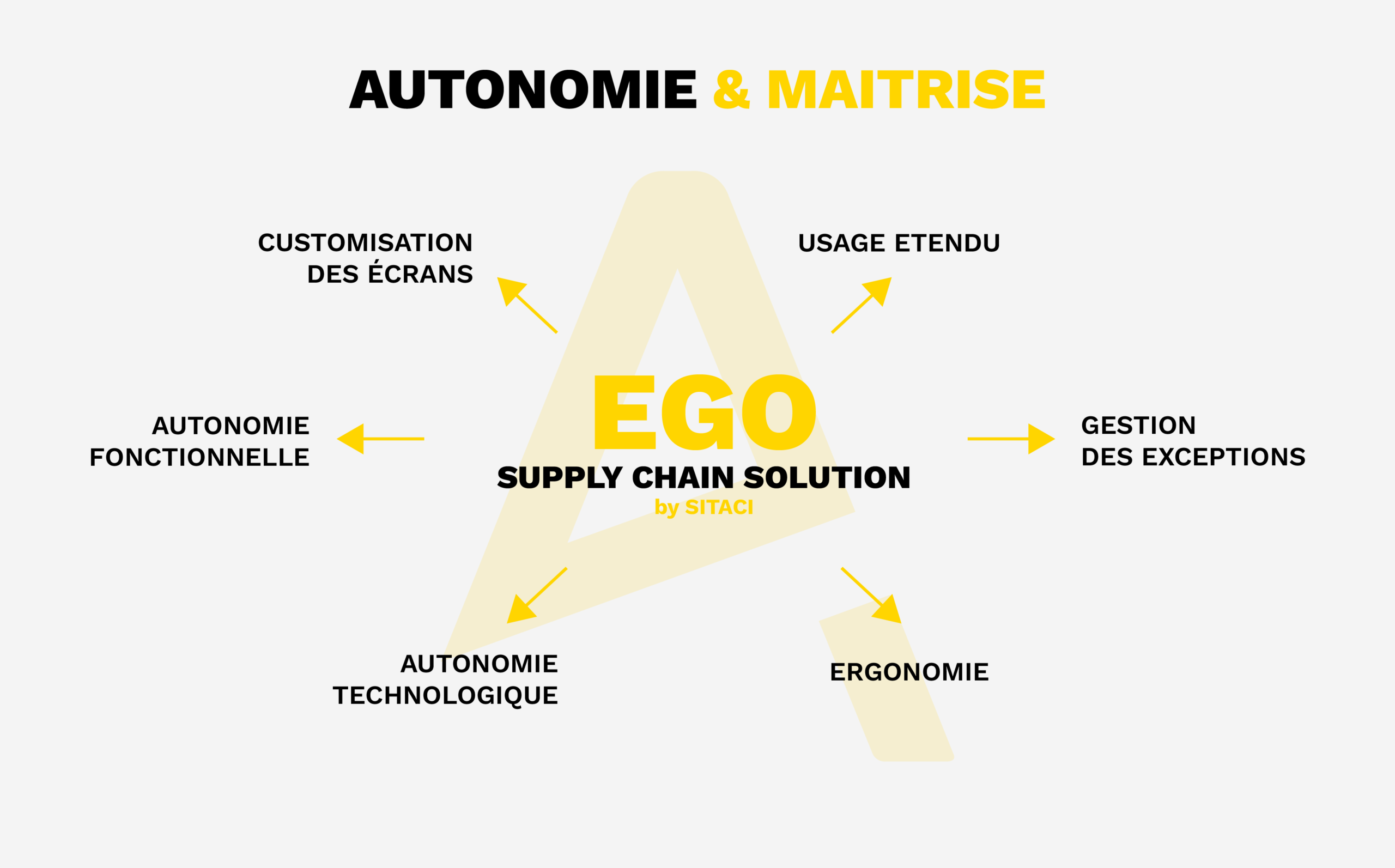
Why trust us in 5 arguments?
1- Control your processes independently
Our EGO WMS platform emphasizes flexibility and control of your logistics processes. You can easily build and adjust your business processes to meet your specific needs. With simple and quick settings, you can evolve your processes in harmony with your organization.
2- Gradual evolution with an adaptable and modular solution
The EGO WMS platform is designed to grow with your business. Thanks to its modular structure and its function activation principle, it offers agile and responsive integration into your existing processes. You can evolve your organization at your own pace, benefiting from proven modules integrated into the WMS platform.
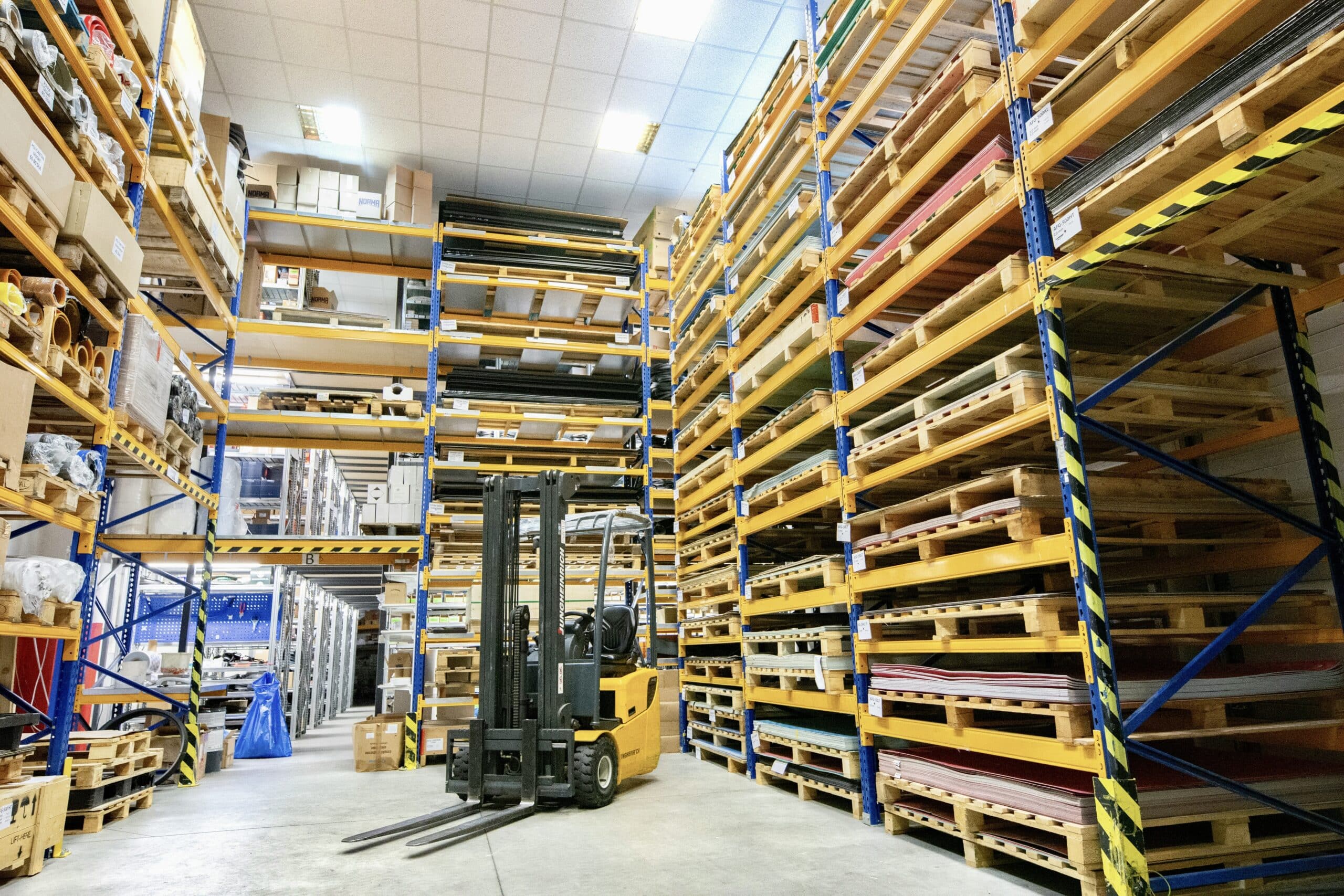
3- Expand your scope beyond the warehouse
4- SaaS mode: flexibility and savings
5- Fast and efficient integration
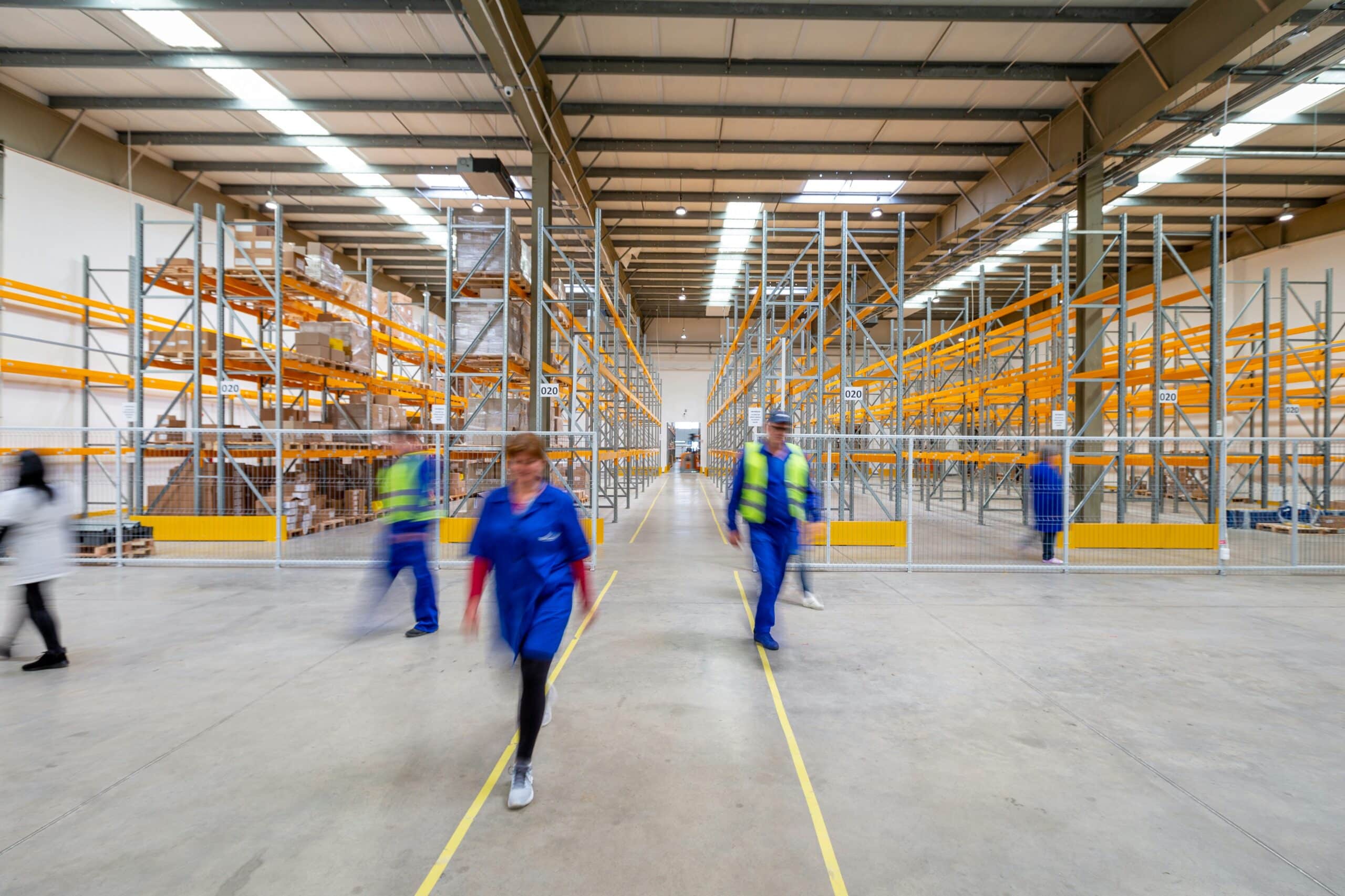
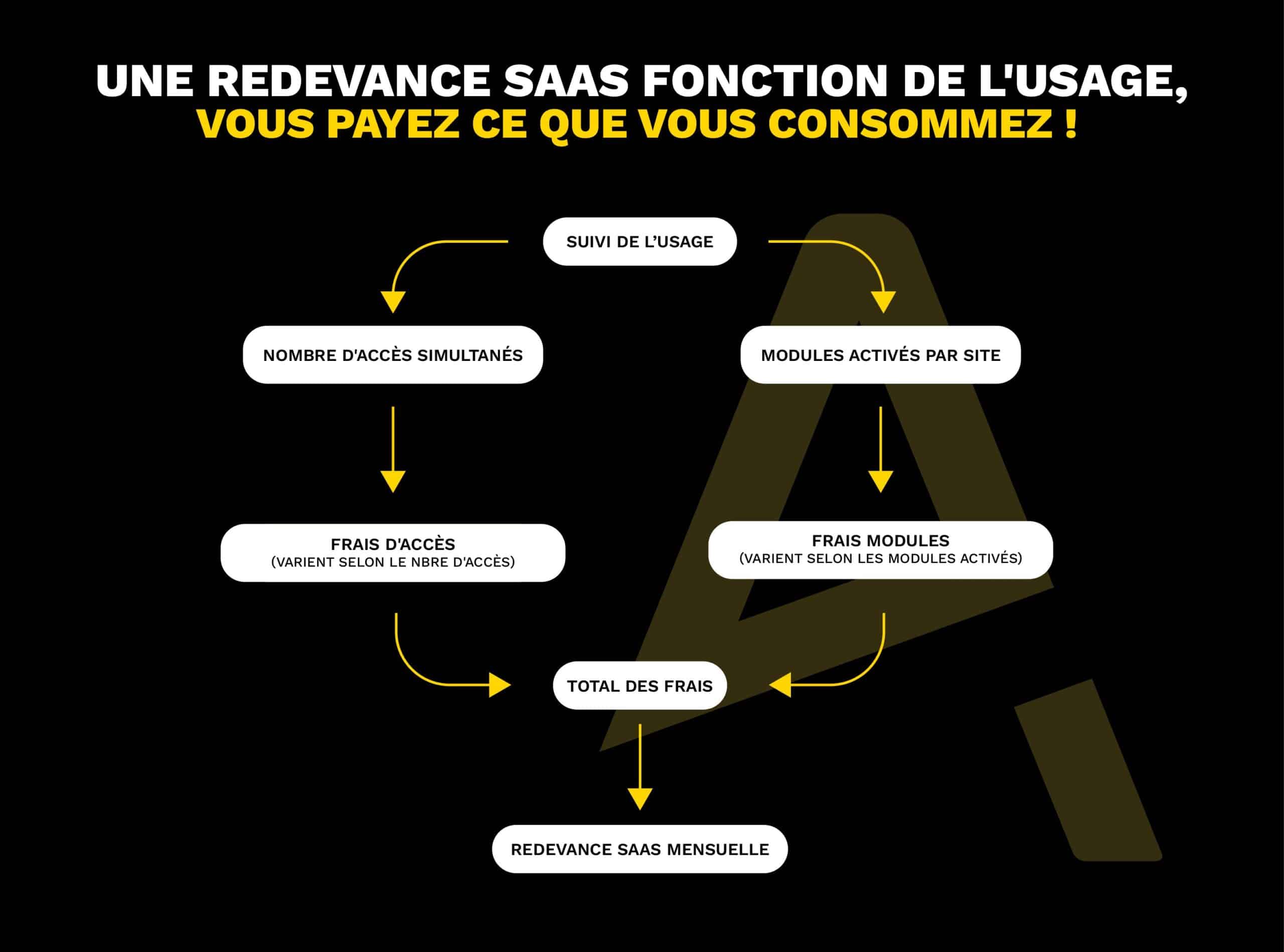
Features covering all warehouse activities
Discover our features









